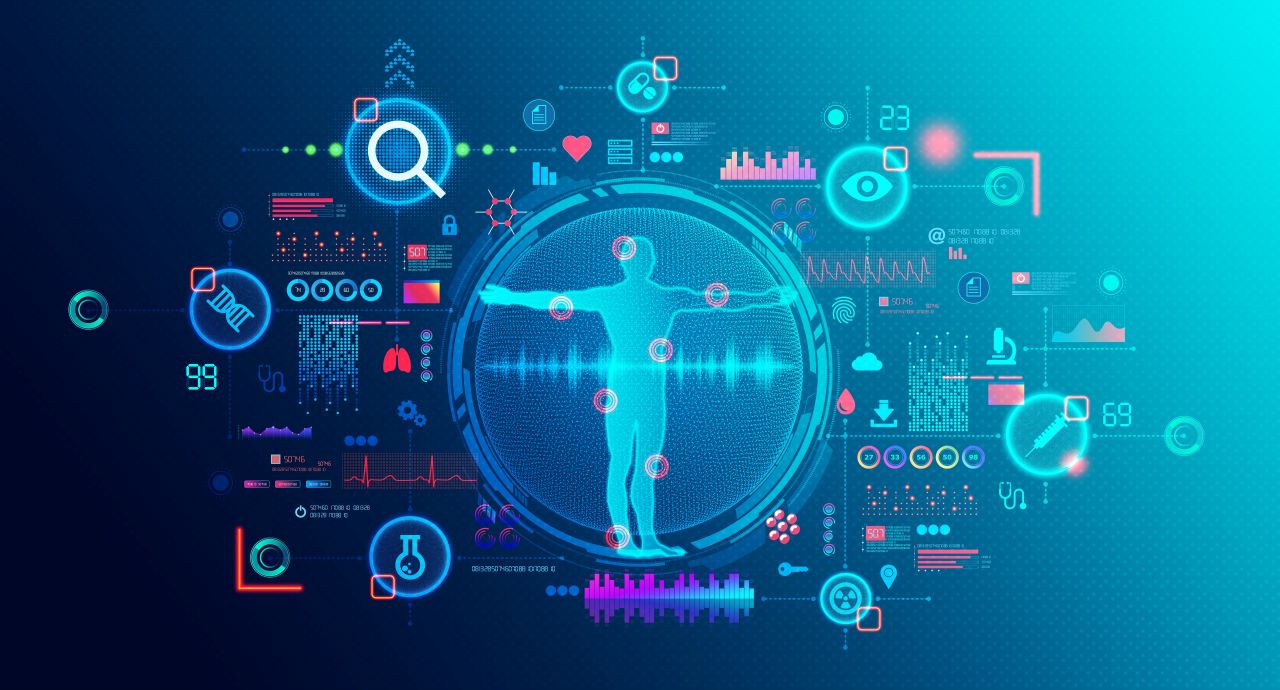Clinical trials are essential to ensure the safety and efficacy of all potential drugs before they enter the market. However, this process remains slow, expensive, and unpredictable. Artificial intelligence (AI) tools hold the potential to improve the success and efficiency of clinical research.
Recruitment of patients remains a critical challenge
Around 80% of global clinical trials fail to recruit and retain enough patients to enrol on time. The impact of poor recruitment on a trial is immense in terms of time and associated financial burdens. However, AI can identify potential candidates for clinical trials by analysing vast amounts of patient data and medical records, thus improving recruitment. It can also analyse social media content to identify specific regions where a condition is more prevalent, narrowing down the search for an optimal cohort.
Once desired patient subgroups are detected, AI can then assist and accelerate trial recruitment. Traditionally, eligible patients are found through hospitals or clinics, but often when recruiting large numbers of people, only a few are eligible. AI technologies can alert medical staff and patients about trial opportunities and reduce the unnecessary screening of patients. It can also help to simplify entry criteria to be more accessible for potential participants. AI-based analysis can also provide insight into participant behaviour, informing researchers who can then use the information to design more efficient and effective clinical trials to be more patient-centric.
AI tools can improve patient retention
The average dropout rate is about 30% for traditional clinical trials, depending on the trial phase. Patients may discontinue trial participation for various reasons, including inconvenience, the number of visits required, complex trial protocols, lack of support, and little or no reimbursement of expenses.
Through AI, health assessments can be performed remotely in patients’ homes, improving the patient experience and ease during clinical trials, and therefore boosting patient participation and retention. Decentralised clinical trials reduce the reliance on in-person trial sites, and overcome any barriers related to inaccessibility, especially for underrepresented populations.
Through AI, patients’ vital signs and other information can be collected remotely through wearable devices and mobile apps. The real-time tracking of medication can also help reduce medical non-adherence. The traditional process of manually tracking medication, through reliance on a patient’s memory, is prone to error and can limit clinical trial outcomes.

US Tariffs are shifting - will you react or anticipate?
Don’t let policy changes catch you off guard. Stay proactive with real-time data and expert analysis.
By GlobalDataReports
Artificial Intelligence (AI) Market Size, Share, Trends, Analysis and Forecast by Product/Service, Enterprise Size Band, Vertical and Region, by 2026
Digital twins are increasingly entering the clinical trial space
Digital twins allow researchers to observe the patient in real time while simulating and predicting different clinical outcomes for the patient in a trial. This has the potential to reduce the cost of clinical trials, as by using digital models of patients instead of physical ones, fewer funds are needed for recruiting and paying patients.
Digital twins can also improve efficiency and patient safety, as trial scenarios can be tested on a computer model, reducing side effects, and avoiding trial scenarios that are likely to fail. Digital twin models could act as the placebo in clinical trials, meaning humans would all be given the actual trial drug, therefore making trials more ethical for humans. However, regulatory oversight is needed to ensure that data security and privacy issues associated with digital twin usage are managed.
While the different applications of AI promise to increase the efficiency of clinical trials, universal data management and inherent bias in data need to be addressed to successfully utilise AI. The differences in regulation between countries limit the ability for collaboration and cooperative research and may restrict the ability to train AI systems on a global scale. AI-based systems also raise data security and privacy concerns, therefore maintaining confidentiality of medical records used in clinical trials is crucial.






